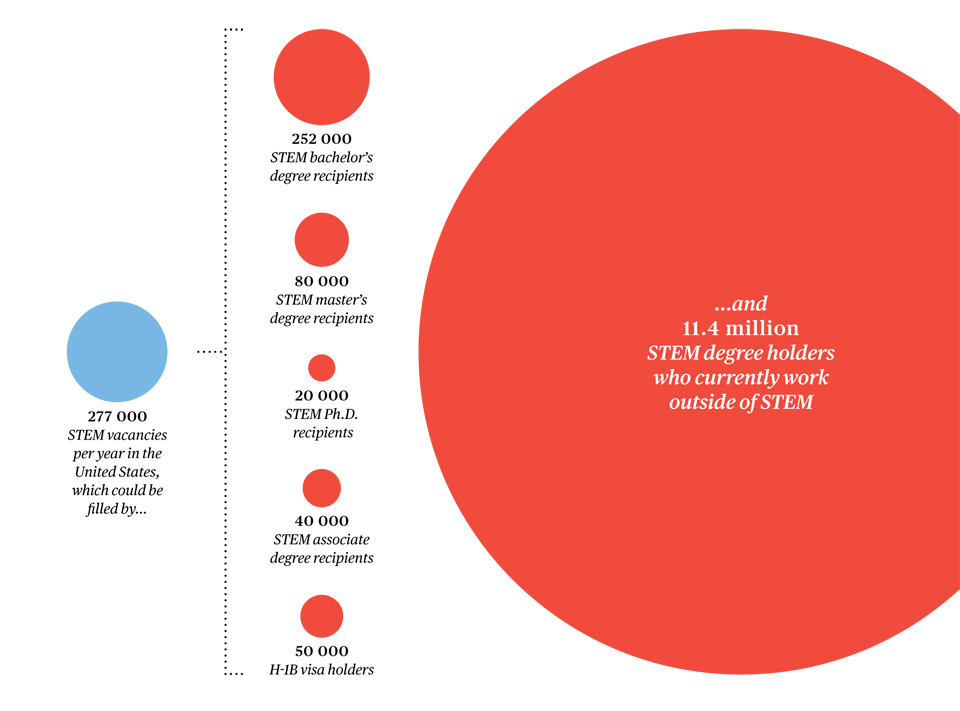From this IEEE Spectrum magazine The STEM Crisis is a Myth (short for science, technology, engineering, and mathematics).


That report argued that the best indicator of a shortfall would be a widespread rise in salaries throughout the STEM community. But the price of labor has not risen, as you would expect it to do if STEM workers were scarce. In computing and IT, wages have generally been stagnant for the past decade, according to the EPI and other analyses. And over the past 30 years, according to the Georgetown report, engineers’ and engineering technicians’ wages have grown the least of all STEM wages and also more slowly than those in non-STEM fields; while STEM workers as a group have seen wages rise 33 percent and non-STEM workers’ wages rose by 23 percent, engineering salaries grew by just 18 percent. The situation is even more grim for those who get a Ph.D. in science, math, or engineering. The Georgetown study states it succinctly: “At the highest levels of educational attainment, STEM wages are not competitive.”See also HN discussion.